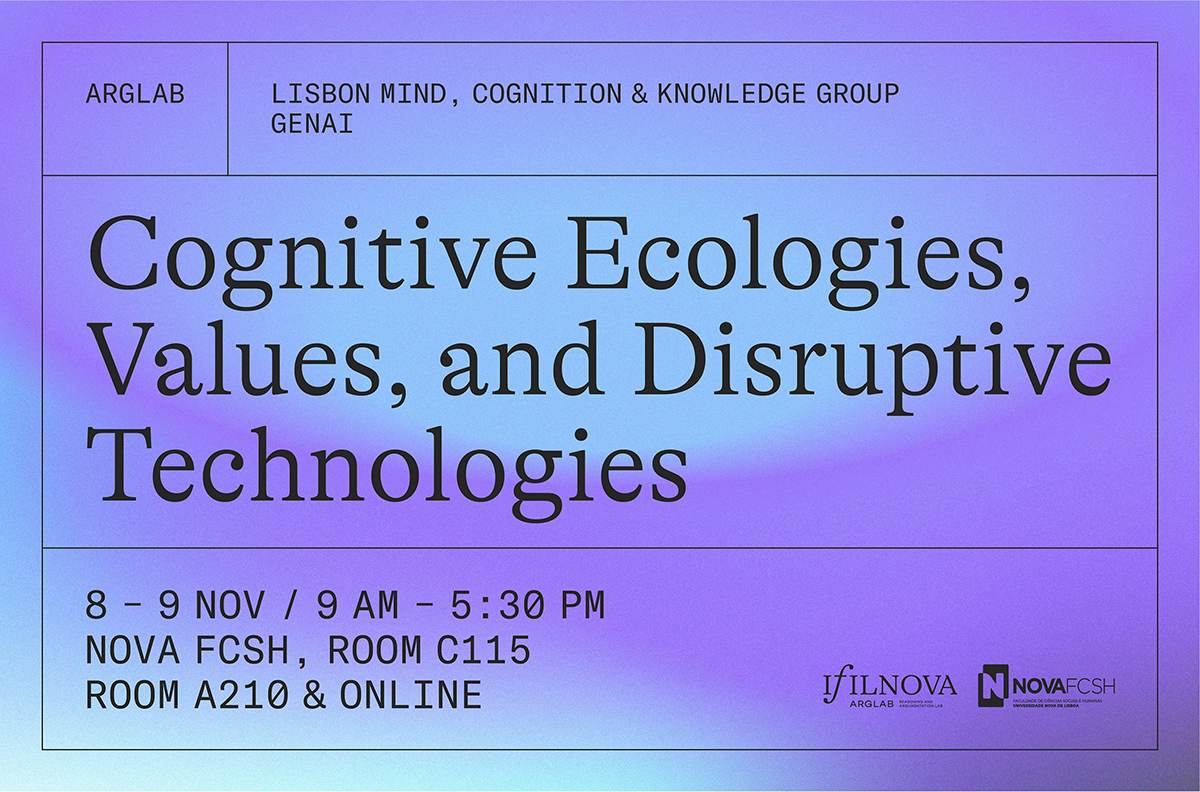Cognitive Ecologies, Values, and Disruptive Technologies

The concept of cognitive ecology has found diverse applications, offering valuable insights into the interplay between human cognition, affect and agency and its relationship and dependence on technology, and the environment (Tribble and Sutton 2011, Hutchins 2010). In the last thirty years, we have lived through a period of accumulation of rapid technologies such as the mobile internet, GPS, smart phones, social networks and now Generative AI. Such technologies have already reshaped human cognition as we have come to rely on them in a variety of ways (Smart, Heersmink, and Clowes 2017, Smart, Clowes, and Heersmink 2017, Clowes 2019, Krueger and Osler 2019). Many can be classed as disruptive technologies, not just because they change the way we do things, but, from a 4E cognition perspective, they can also change the way we think, remember, act and feel. Especially in the context of recent discussion of ‘hostile scaffolding’ (Timms and Spurrett 2023), how should we think of the qualitative and ethical implications of our cognitive dependence and a new order of ‘smart’ technologies?
The rapidly adoption of a new kind of cognitive technology, namely Generative AI, makes the understanding of the cognitive implications of (disruptive) technological change more essential than ever. This workshop brings together a brilliant group of international scholars and provides a platform for multidisciplinary discussions bridging technology, cognition, and values within various ecological contexts.
Please join us to discuss Cognitive Ecologies, Values, and Disruptive Technologies.
To join the sessions via Zoom, use this link.
This event is organised by Robert Clowes, Gloria Andrada & David Spurrett and will take place in the scope of the activities of the Lisbon Mind, Cognition and Knowledge Group and the “GENAI — Exploring Human Cognitive Flourishing against the background of GENerative AI: Sustaining Deep Minds in Our New Cognitive Ecology” exploratory project.
Programme
DAY 1: November 8th
LOCATION: Room C115 (Building C)
9:00–9:30 Introduction to the conference on Cognitive Ecologies, Values and Disruptive Technologies
9:30–10:30 Keynote Talk 1 | John Sutton, Varieties of disruption in cognitive technologies of memory and navigation
10:30–10:50 Coffee Break
10:50–11:40 Lucy Osler, The politics of nudges and niches
11:40–12:30 Ryan Timms, Scaffolded Dark Patterns: Scaffolding, User Interface Design & Manipulation
12:30–14:00 Lunch Break
14:00–14:50 Mateusz Hohol (w/ J. P. Grodniewicz), Therapeutic chatbots as cognitive-affective artifacts
14:50–15:40 Robert Clowes, Incorporating Generative AI in our Cognitive and Affective Lives as Extended Minds and Virtual Personalities
15:40–16:00 Coffee Break
16:00–16:50 Janna van Grunsven & Lavinia Marin, Teenage Cancel Culture and the Importance of Interpersonal Identity Exploration — An Enactive-Ecological take on How Teenagers are Wronged by Social Media Platforms
16:50–17:10 Break
17:10–18:10 David Spurrett, Nasty Niches
18:10–18:30 Possibly summative discussion of the first day
19:00 Dinner
DAY 2: November 9th
LOCATION: Room A210 (Tower A)
9:20–10:20 Keynote Talk 2 | Evelyn Tribble, To the Tune of: Ballads and Disruptive Technology
10:20–10:40 Coffee Break
10:40–11:30 Konrad Werner, Cognitive confinement in the suburbs: niche construction, (not much) distributed cognition, and collective problem solving
11:30–12:20 Jesus Vega, Cognition in taskscapes
12:20–14:00 Lunch Break
14:00–14:50 Guido Cassinadri, ChatGPT in education: Mind Extender or Supercognitive Artifact?
14:50–15:40 Paul Smart, Mindcraft: Cognitive Ecologies from an Engineering Standpoint
15:40–16:00 Coffee Break
16:00–16:50 Gloria Andrada (w/ J. Adam Carter), Know-how and the Mind-Technology Problem
16:50–17:00 Break
17:00–17:30 Cognitive Ecologies, Values and Disruptive Technologies (Drawing the threads together and future perspectives)
17:30 Formal End
17:30–18:30 Visit to Local Bar for “round table” discussion towards future collaboration
20:00 Informal dinner in city center

